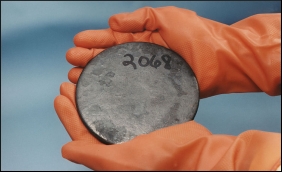|

|
Australia may start supplying uranium soon
|
|

|
|
| Top Stories |
 |
|
|
|
Rekha Bhattacharjee | 30 Nov, 2015
After eight years of intense negotiations, bureaucratic hurdles and a shifting nuclear policy, the Australian government has finally given the green signal to the export of uranium to India "which can begin immediately".
The Australia-India Nuclear Cooperation Agreement permits Australian companies to commence commercial uranium exports to India, an important milestone in Australia’s relationship with India, Australian Foreign Minister Julie Bishop said in a media release.
While previous Liberal prime minister Tony Abbott was quite gung-ho about the supply of uranium to India, current incumbent Malcolm Turnbull would get the credit for sealing the deal to export uranium to the power-hungry south Asian country.
"The supply of Australian uranium will help India meet its rapidly growing electricity demand and improve the welfare of its people," said Bishop in the media release. "The administrative arrangements have been signed and uranium exports can begin immediately."
Many observers of the bilateral ties would agree with foreign minister's assertion that the export of uranium to India is a milestone in the bilateral relations.
It was Liberal prime minister John Howard who first agreed to sell uranium to India in 2007 in spite of the refusal by New Delhi to sign the Nuclear Non-Proliferation Treaty (NPT) which has been a pre-requisite to receive Australian uranium. It is believed that Australian PM was persuaded by the US to sell uranium to India soon after finalisation of the US-India Civil Nuclear Agreement in July that year.
His successor, Kevin Rudd of Labour reinstated the ban on export of uranium to India as it had not signed the NPT, but next Prime Minister Julia Gillard, who deposed Rudd in a bloodless party coup, made a historic shift in her party’s policy by agreeing to export uranium to a non-NPT signatory in 2012.
Much more pragmatic than her predecessor, she admitted that a refusal to sell uranium to India had been an "obstacle" to getting a larger slice of the benefits of the booming Indian economy.
Australia is also keen in exporting coal to India to run her conventional power stations. But it was the nod to the uranium deal which was being awaited anxiously by New Delhi watchers in Australia.
Besides India, Australia has also finalised a Nuclear Cooperation Agreement with the United Arab Emirates.
|
|
|
| |
|
|
|
|
|
|
|
|
|
|
|
|
|
|
| |
| Customs Exchange Rates |
| Currency |
Import |
Export |
US Dollar
|
66.20
|
64.50 |
UK Pound
|
87.50
|
84.65 |
Euro
|
78.25
|
75.65 |
| Japanese
Yen |
58.85 |
56.85 |
| As on 13 Aug, 2022 |
|
|
| Daily Poll |
 |
 |
| PM Modi's recent US visit to redefine India-US bilateral relations |
|
|
|
|
|
| Commented Stories |
 |
|
|
|
|
|
| |
|